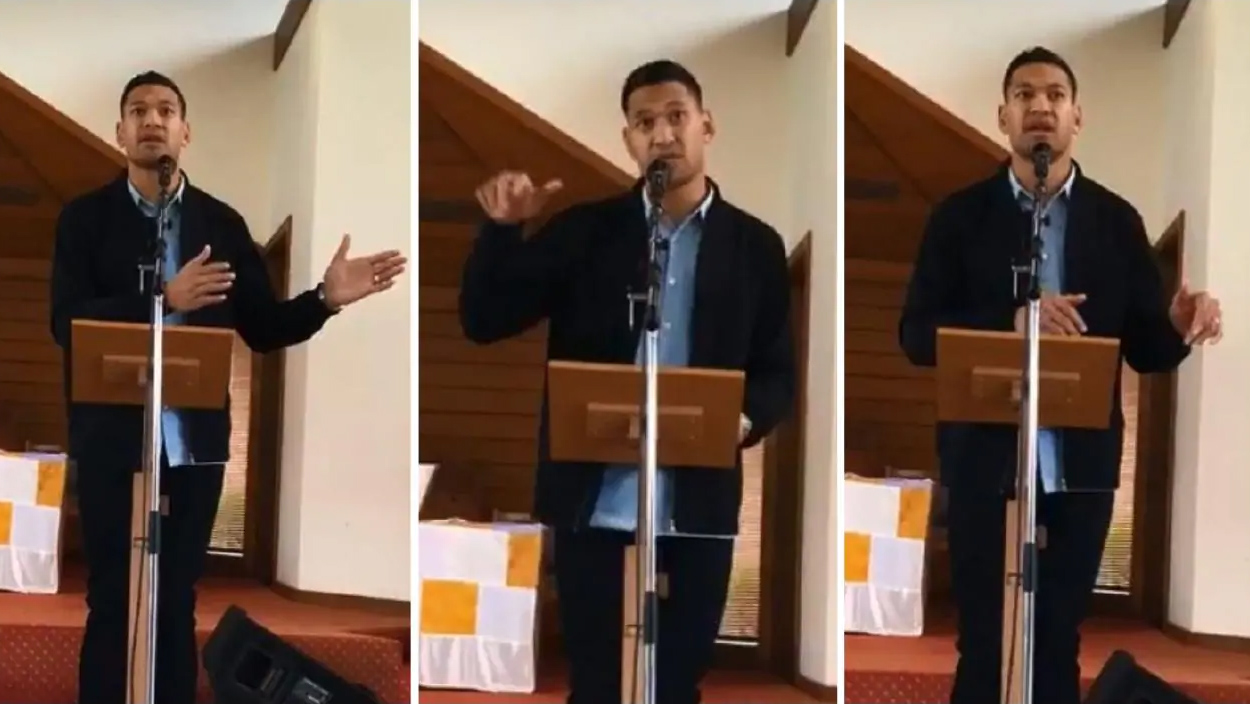The Folau case is shaping up to be every bit as consequential as Mabo or the Scopes Monkey Trial. This has evolved into something far more consequential than a wealthy sportsman spouting off on social media. Ordinary people are drawing a line in the sand against the diktats of the elite.
English emigre Nick Cater has long been fascinated with the “rise of an Australian ruling class”, the inner-city, university-educated elite who genuinely think they’re morally superior to their fellow countrymen. Rather than an attack on religious belief, Cater sees the Folau case as fundamentally an inter-faith war.
RA’s treatment of Folau would be no less disagreeable if it were indeed a commercial decision. But it would at least furnish an excuse…The Folau case is not, then, an attack on religion as it first appears. It is a sectarian dispute between faiths.
[Rugby Australia’s chairman Cameron] Clyne’s moral compass points in one direction, Folau’s another. Folau stands by what he believes to be revealed truth and thinks the postmodern cant of diversity and inclusion is mumbo jumbo. Clyne thinks the opposite. One believes the reward for unrepented sin is damnation. For the other it is to be cast into the darkness to dwell among the wretched who will never score a freebie to the Bledisloe Cup or a seat in the Qantas Chairman’s lounge.
Despite Australia’s history of secularism, sectarianism once played a bitter, if subliminal, role in the nation’s politics. The most brutal political fights in Australian history played out along sectarian lines: the savage conscription debates during WWI saw Catholics in staunch opposition. The bitter Labor party split in the 1950s broke the party between Communists and Catholics, a rift which persisted until Whitlam in the 1970s.
The left today may be hostile to religions like Christianity, but are as zealously committed to “progressive” nostrums as any pulpit-thumper.
Once we imagined that the decline in religious affiliation would end the pronounced sectarian divide that governed social, political and workplace encounters. Instead, the 6.9 million Australians who declared affiliation to “no religion” in the 2016 census have coalesced into communities of believers with shared moral codes frequently in conflict with established religions.
Like the 12.2 million who declared themselves Christian, only a minority are possessed by evangelical zeal. Most are only passively attached and have no problem rubbing shoulders with the other. Sectarianism has been at its weakest when this live-and-let-live attitude prevailed.
The left has merely substituted one god for another. In place of God the Father, they prostrate themselves before the State the Mother.
Today such decisions are increasingly forced on the courts, where the empire of the law has been expanded to accommodate them…
People seem less able to work through differences…How much easier it must seem to hand these matters to judges, who score higher than politicians on the indexes of public trust and are not constrained by the need to retain Higgins or Longman at the next election.
…[retired British Supreme Court justice] Jonathan Sumption in this year’s BBC Reith Lectures…points to a growing moral and social absolutism that turns to the law to impose conformity. The courts are also the arena in which the modern fetish for safety is satisfied. Both are present in the Folau case.
theaustralian
This is a dangerous trend. Unlike, politicians, judges are not answerable to the public they are supposed to serve. Indeed, they reflexively resent any criticism as impinging on their “freedom”. Turning fundamental freedoms over to the whims of case law also leaves our most basic rights to twist in the winds of judicial fashion. Anyone who thinks that courts should be the ultimate arbiters of rights might want to consider Dred Scott v. Sandford.
Ultimately, the Folau case is ground-shakingly important not for whatever legal claim it settles, but for the sentiment it represents: the rising-up of everyday Australians against the narrow-minded censoriousness of the modern puritans.

